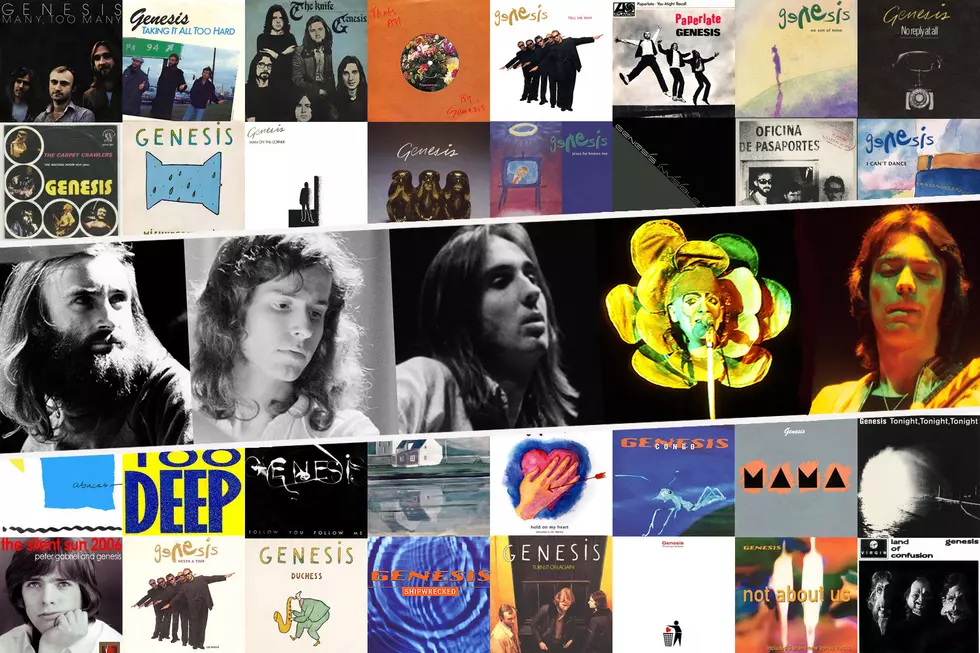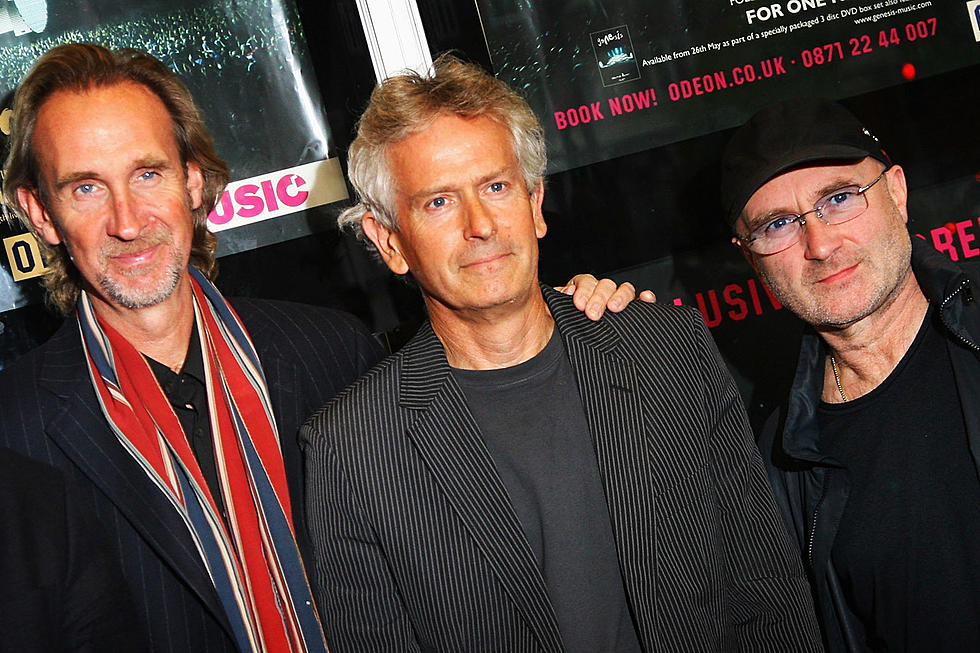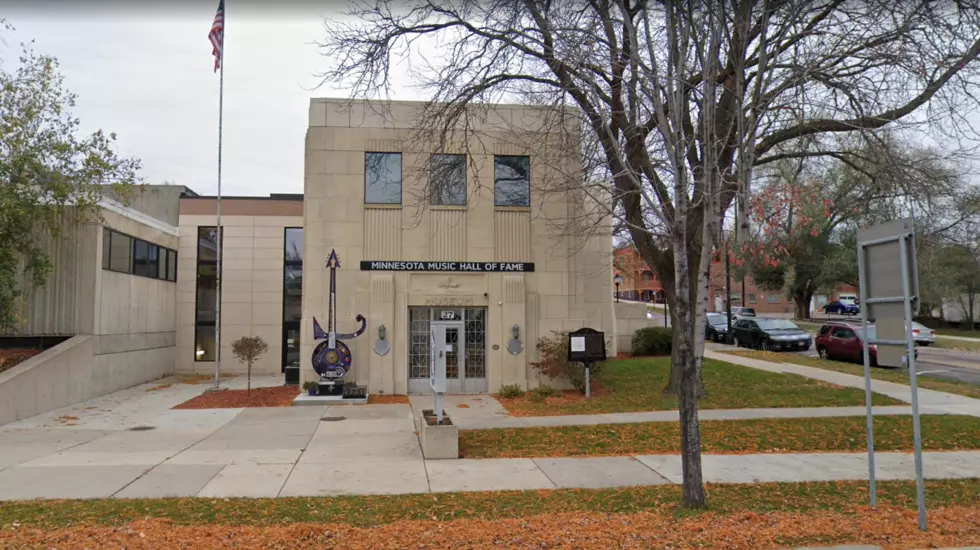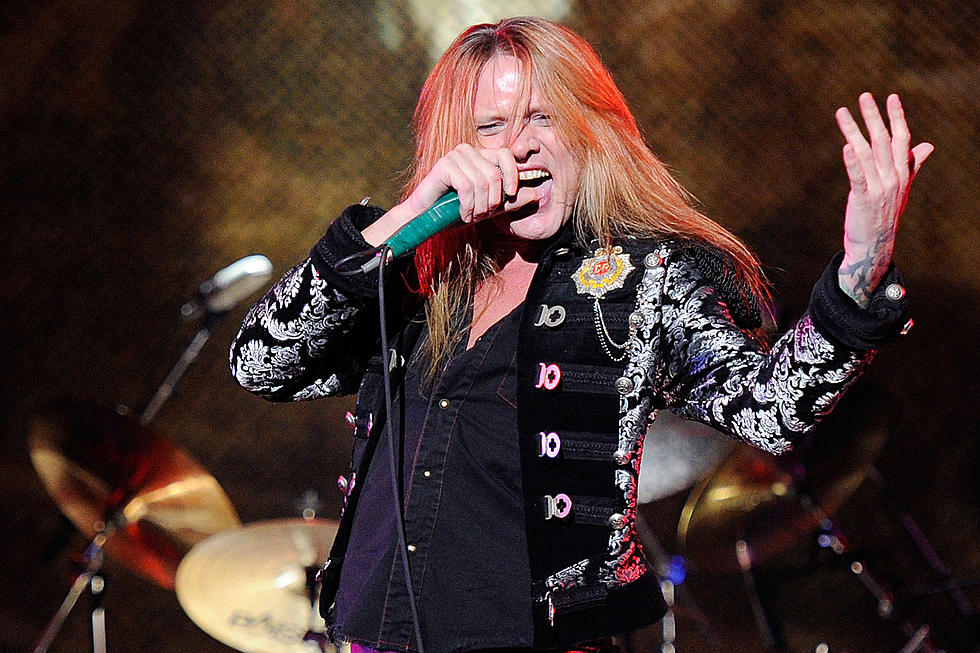
Why Genesis’ Tony Banks Left Progressive Rock Behind: Exclusive Interview
Tony Banks' rock days have been in the rear-view for the past decade. Yet he's faced the same question pretty much since the day he completed a massive Genesis tour with former bandmates Phil Collins and Mike Rutherford in 2007: "Will the band ever reunite again?"
It's the prog-rock elephant in every room he enters, trampling over the music he's made during that time. In truth, that stadium-packing rock jaunt was an aberration from Banks' creative evolution.
Since releasing 2004's Seven, which marked Banks' orchestral debut, his milieu has been oboes and cornets – not synthesizer solos and tom-tom fills. Now, Banks has come full-circle with his latest classical suite: Five, with its elegant melodic themes, often sounds like a lost Genesis album adapted for orchestra. Banks talked to UCR about this journey from rock to classical.
Five really strikes me in how much it recalls Genesis. It has this romantic quality that almost reminds me of the longer pieces like "One for the Vine" or "Supper's Ready." The melodies continue to evolve, with numerous themes popping up.
Obviously I'm the same writer, so I have a certain way of working. In the early days of Genesis, I used to be perhaps most in favor of these longer pieces, going place to place. I find with these orchestral pieces that there are no constraints. I don't get that same feeling that I have to repeat or do anything like that. I also don't have the other band members telling me or encouraging me what to do – or not do. I just go where I will, really. The pieces tend to end up quite long and go through a series of moods and themes to build an overall picture. I can see the connections [to Genesis]: The way of writing is not dissimilar, so it's not surprising. It's just the ultimate arrangement. The way we make it sound is different, but the ingredients are similar.
My next thought was: There are probably Genesis fans who think to themselves, "Oh, I don't really want an orchestral album from Tony Banks – I want a rock album." And then there are classical fans who may disregard something like Five because of your rock work. But actually both camps might be surprised by how much they have in common. A lot of these melodies could have served as the foundations for Genesis songs, and a lot of Genesis songs could have easily been arranged for orchestra – and, obviously, some have.
I agree with what you're saying. The problem is that there are people from both camps who could like it, but they tend to have their own prejudices, so they don't tend to do it. So, it's quite difficult to get heard, in a way. Radio is very segregated, as well. Some people have the same attitude you just mentioned: They won't play one or the other. Most of the time, the records are bought by people who've liked what I've done in the past. I think most prog fans, if they just got used to the idea of an orchestra, would find a lot in orchestral music that they like. The approach is more similar than in a pop song, where you're trying to be concise in three or four minutes – whereas classical music conventionally tends to take 30, 45, 50 minutes to do what it's trying to do. That suits me, and I think proggers quite like that. We have songs like "Supper's Ready" and other songs that you mentioned that are kind of what we're all about. It's good to encourage people to listen. I do find this problem slightly from both ends: The classical people tend to be a little bit snooty about everything, and other people want rock albums. I did the first of these [orchestral albums, Seven] almost because I wanted to get it out of my system, and it actually ended up being a great deal more successful than my previous two or three rock albums I'd done – and that gave me a great deal of encouragement, really. I felt I wasn't really carrying anybody with me with things like Strictly Inc. and Still, which didn't really do much. I felt, in a way, that this was interesting. I was trying something else here and attracting a slightly bigger audience. There are people out there who, if they hear stuff, will get interested.
Watch Tony Banks Perform 'Prelude to a Million Years'
Like you said, it's mostly a matter of adjusting to the arrangements. For rock fans, you have to get used to, say, strings instead of keyboards or guitars.
I think the absence of drums is the thing people find difficult. They get very used to the beat being very laid down by a drum, and it creates a certain kind of effect. I love drums – don't get me wrong. I think it's fantastic. But with orchestral music, it's slightly freer and doesn't have that same pulse going through it, necessarily, so you have to follow it through. I do like when we've had sections like the beginning of "Watcher of the Skies," which relates to the beginning of Five, "Prelude to a Million Years," which is a slow string part and echoes those early days of Genesis. I think people could like it. I'm sure they could like it; I know they can. But as you say, there's so much music out there, so many choices. Are you going to be prepared to give 50-60 minutes of Tony Banks meandering about on an orchestra a chance?
I want to know more about the demos you made for Five. I know the foundation was piano, and many of those parts survived onto the final album. How did you arrange the other instruments? With computer software?
I used samples. There are so many good orchestral samples out there that sound quite good. If you hear the demo of something like "Prelude to a Million Years," it sounds quite similar to the result. The orchestrator I worked with, Nick Ingman, was able to embellish and add – particularly in the one area I've always been a bit lazy in: the percussion. Orchestral percussion is such a different world from rock groups that I'm happier leaving that to other people, so a lot of that comes from him. A lot of what is there, particularly the lead instruments and the harmony work, is all there on the demos. And some of the samples are really good: I've got a fantastic flute sample, a good cornet sample. The reason "Reveille" has a cornet solo going through a lot of it is because I have a great cornet sample. I played along with what I had, and it sounded really good. A lot of the sounds I'm playing with are pretty close to reality, so you sort of know where the final result is going to go. One of the main reasons these were demos was to tie down the tempos. One thing that's really annoyed me on previous things I've done is when the tempo hasn't been right.
Listen to Tony Banks Perform 'Reveille'
When rock songwriters – or just people who are new to orchestral music – compose something for strings or brass, they often write melodies which are outside of the range for certain instruments. That's the importance of an arranger, of course. But have you found you've gotten better at that since Seven – of assigning parts to instruments? Or have you decided to just lean on the arrangers and let them do their jobs?
Basically, because the samples I use tend to be genuine, they don't go out of their ranges. But that doesn't stop me from sometimes going a little too high: I'll push it a bit. For example, with "Reveille" and the cornets and trumpets and stuff, there was a time toward the end where the poor chap had to pick up this little piccolo trumpet – which was about six-inches long – to hit the high notes. A couple of times in the soprano sax part in "Ebb and Flow," it went a little too high, and I knew I'd gone too high. I put an oboe note in the original demo, and it goes too high. He had to bring what seemed like a toy saxophone to play it. But I'm pretty good at keeping within the ranges. I think when we did the first one of these [albums], the arranger had to use bassoons where I used an oboe, but that's fine. It sounded great. It's just about keeping the flavor of the original instrument I used.
Your chords have always been one of the signature elements of Genesis. I recall Steve Hackett once describing you as the "chord king."
I've heard him say that before; he very sweetly said that at one point. I've always loved what you can do with chords. Keyboard players, we have 10 fingers, so we have a tendency to use them. I'm always looking for transitions that haven't been done before and, if they have, then how to use them in an unusual way. If you look at this whole suite, there are key changes from sections to sections sometimes, and I've always liked that: It gives you an uplifting feeling. I've always been a big admirer of rock songs that have done it. I always think of [the Four Tops' 1967 hit] "Reach Out, I'll Be There" – when it goes into the verse, there's an unusual key change. It makes what's an ordinary chord sequence on the verse sound so fantastic. By the time you've gotten used to it, you're back out the other end, and it's gone somewhere else. There are various people: Holland Dozier Holland were brilliant at it; the Beatles did it; Brian Wilson was brilliant at it. Modern pop music seems content to stay within four chords, keep the key the same, and all the rest of it, which I find a little dull myself. But hey, a lot of people like it. I like some songs in that genre, but myself – it's what people either like or dislike about me, I suppose, that I trouble about on the chords a bit.
See Genesis Among the Top 100 Albums of the '80s
More From KYBB-FM / B102.7










